- Home
- Keith Douglass
Carrier c-1 Page 9
Carrier c-1 Read online
Page 9
"So we're damned if we attack them and damned if we don't," the President said. He leaned back in his seat, fingers drumming on its arms.
"A diplomatic solution is still in our best interests, Mr. President," the Secretary of State said stiffly. "The international repercussions to a military response to the Korean crisis could-"
"Screw international repercussions!" Caldwell snapped. "Damn it, Jim, this is no time for appeasement!"
"Mr. President!" Schellenberg insisted, ignoring the general. "I have a meeting scheduled with the Chinese ambassador this afternoon. I have every reason to expect that we can open talks directly with the North Koreans through the PRC's mediation!"
Caldwell opened his mouth as though to say something further, but the President stopped him with a raised hand. "I wanted options, gentlemen. Options, not argument. Mr. Schellenberg thinks we have a possible shot at a negotiated settlement. What else do we have?"
"The 82nd Airborne is on full alert at Fort Bragg," the general said in a crisp, matter-of-fact tone. "Also the 7th Light Infantry and the 75th Rangers. Military Airlift Command is on standby. The Joint Chiefs are working out plans for full deployment out of South Korea. Marine assaults along the coast, airborne landings at P'yongyang, followed up by the infantry. We'll have to assume full ROK involvement, of course."
The image was not a pleasant one. "We'd take a hell of a lot of casualties."
"I don't doubt it, Mr. President." Caldwell looked down at the table. "But we need a strong military response, or these people will know they can do anything to us they want. There's no other option."
Phillip Buchalter cleared his throat. "Not to disagree with the general, Mr. President, but we may have another option. A less… radical one." He passed a manila folder down the table. "This came through from the NSC Threat Team an hour ago."
The President accepted the folder and leafed through the papers inside. The Threat Team had been assembled under the auspices of the National Security Council the previous afternoon. The folder contained the summary of a plan for an air strike against North Korea, launched from the carrier battle group already on station and directed at military targets: radar stations, SAM sites, and airfields. He looked up. "Operation Winged Talon?"
"Yes, sir. Based on proposals put together by the CO of that carrier group we have out there. You'll notice that none of the targets are in Wonsan itself. No chance of hitting that Russian ship. The Threat Team feels that a measured response will convince the North Koreans that we mean business." He glanced briefly at Schellenberg, who was scowling. "It might induce them to negotiate, sir."
"You think so?"
"It may be worth a try." The National Security Advisor seemed unwilling to commit himself. "Certainly, the threat of hitting that Russian ship by accident is quite low. There's also less chance that we'll hit our own people, since they're probably still in the city proper."
"We don't know that," Hall said. "We don't know where our people are being held!"
Buchalter spread his hands. "No guarantees. But it seems like a good bet."
The President studied the report a moment longer. His own gut feeling was to try for a military option. Anything was better than doing nothing. And yet…
"It looks like we're in a holding pattern then," he said after a moment. He looked up at Schellenberg. "Jim, put some of your people to work on the political ramifications of this thing. I want to know how our allies are going to react if we go in shooting."
"Yes, sir."
He slid the folder back down the table toward Buchalter. "Phil, Winged Talon looks good, but it'll have to go on hold, at least for now. We have to give State their chance at negotiation. But pass on your recommendations to the Joint Chiefs." He looked at Caldwell. "General, your plan is on hold too. We've got to get a better feel for how the Russians will react. Agreed?"
"Agreed, Mr. President." He did not sound happy. There was, in fact, a definite feeling of gloom in the Situation Room, a sense that events were drifting beyond the ken of men who were used to being in control.
It was not a pleasant feeling.
1740 hours
Flight officer's quarters, U.S.S. Thomas Jefferson
Tombstone lay on his rack, arm thrown over his eyes, trying to sleep. It is never truly quiet on board an aircraft carrier. The aviators' quarters were located forward of the hangar deck and immediately below the flight deck. The pounding, hissing, slamming machinery which drove the Jefferson's catapults was located only a few bulkheads away, and the rattle of chains and cat shuttles, the harsh clang of steel on steel penetrated the small room's overhead almost round the clock. During launch operations, it was actually impossible to hold a conversation in the room, so loud was the boiler room racket from the catapults.
The cats were silent for the moment, though Tombstone was aware of the clatter of chains overhead and the periodic roar, screech, and bang of recovery operations aft. Hornets returning from combat air patrol, he decided.
Aviators were used to the noise, of course, and a tired pilot generally had no trouble sacking out. As exhausted as he was, though, Tombstone couldn't sleep. His mind kept going back to yesterday's dogfight, to Coyote's plane falling from the sky over the Sea of Japan, to the promises he'd made to his friend over the SAR frequency.
He gave up and rolled his feet off his rack. His eyes moved across the narrow room to the empty bunk opposite his.
Coyote's.
His roommate and wingman had left his guitar slung from his rack before he left, and it made small, hollow noises as the ship's motion rocked it back and forth. Gear adrift; Coyote would get an earful if the Captain made one of his periodic inspections.
Except that Coyote wouldn't be coming back. Tombstone wondered just when it would be that some Naval officer would come in and pack up Coyote's gear, clean his uniforms and civies out of his locker, pull down the country music group poster taped to the bulkhead, and clear the way for some fresh-faced nugget from the World. When would they declare Coyote officially dead?
Damn.
Tombstone knew he needed sleep, and he needed it now. This afternoon was prime time, with no duties and no noisy roommates until after chow. Tonight he'd have the duty. CAG had him on the list for standby and Alert Fifteen after 2200, and as sure as he was sitting there, there'd be a scramble. Jefferson was cruising slowly at the eye of a political storm; it was silly to think the tensions unleashed by the Korean crisis weren't going to rise, not now, not after yesterday's engagement.
But sleep was impossible. He rose, splashed water on his face at the stainless-steel basin on the bulkhead, grabbed his leather flight jacket, and left the room. If he couldn't sleep, he could at least lose himself for a bit in sea and sky. All the way aft on the hangar deck, a narrow passageway led from the hangar bay past the ship's engine repair shops to the wide-gaping cavern's mouth which opened across the Jefferson's stern.
This was the ship's fantail. In port, a ladder was rigged to descend from fantail to a floating platform at the ship's stern, allowing the crew to come and go on the liberty boats. Under way at sea, the area was roped off with safety lines, creating a gray-decked pocket of solitude twenty feet above the wash of Jefferson's four big propellers. For Tombstone, it was a place where tension and worry were swallowed by the numbing, rhythmic throb of the engines and the hiss of water boiling into the ship's wake.
Jefferson was cruising slowly eastward now, so the sun was low above the horizon dead astern, a red orb casting ruby reflections across sea and low-lying bands of purple clouds. Korea lay beneath those clouds, one hundred fifty miles distant.
The black silhouettes of three ships stood out in stark contrast against the sky's sunset glory. The largest one must be Chosin, he decided, the Marine LPH which had joined the carrier battle group that morning. Beyond her was the LPD Little Rock and one of the battle group's frigate escorts. Texas City and Westmoreland County, the other two ships of the MEU, were out of sight over the horizon.
It was strange to think that the battle group now included almost three thousand U.S. Marines, as well as Jefferson's air wing and the support aircraft on board Chosin and Little Rock. The carrier group represented a staggering force in terms of conventional arms, yet it was still helpless, dependent on word from Washington to act. Tombstone shook his head. Americans had been captured, had been killed. America ought to hit back.
Yet it all seemed so futile.
A tiny dot in the western sky grew larger. Tombstone gripped the rail, watching as the shape swelled into the blunt, high-winged shape of an S-3A Viking, its huge canopy perched above its nose like a Cyclopean eye. With a rising howl, the Viking rushed toward the end of the flight deck above Tombstone's head, its navigation lights describing brilliant green and red trails in the deepening twilight. He heard the thump of the aircraft's wheels on the steel deck, the rattle and crash of arresting gear snagging the wire, the descending whine as the pilot throttled down after a successful trap.
"Howdy, Commander," someone shouted behind him. "Your uncle's been pushing the ASW patrols."
He turned and found himself face to face with a Navy chief. He recognized the man as part of the deck crew. With over six thousand men aboard the Jefferson, the vast majority were strangers with familiar faces.
"Sub hunting," Tombstone replied. He had to shout to be heard above the carrier's wash. Everyone on board agreed that the only North Korean fleet elements which posed any threat at all to the Jefferson and her consorts were their Whiskey- and Romeo-class submarines, and the ASW Vikings of VS-42 had been up and patrolling around the clock ever since yesterday morning. No doubt the Sea King helos off the various carrier group escorts were patrolling vigorously as well.
The chief struck a cigarette, shielding the flame against sea spray and the eddying wind curling past the ship's hull. "That was a great job you did on the gomers yesterday, sir," he said.
"Thanks, Chief." The man had planted himself against the rail and seemed unlikely to move, so Tombstone turned away and headed back for the cavernous opening leading back into the ship. Usually the fantail was a good place to think. But he didn't want a crowd around when he did it.
Thinking… that was always a bad thing. In Tombstone's experience, aviators who thought too much about their job, about their friends or families, about their responsibilities, were already as good as dead. Maybe it was time he examined his own future as a Naval aviator.
At the moment, it didn't feel like he had much of a future at all.
CHAPTER 9
2235 hours
CIC, U.S.S. Thomas Jefferson
Admiral Magruder leaned across the radar operator's shoulder, bathed in the eerie green twilight of Jefferson's Combat information Center. "How long have they been airborne, son?"
"Almost an hour, Admiral. But they broke off orbiting their base at Vladivostok and set this new course about five minutes ago. one-seven-five, range three hundred. Speed five hundred knots."
Magruder studied the silent sweep of the radar's beam, watching the pulse of light representing a target in the upper left-hand quadrant of the screen. The display was being relayed from one of Jefferson's Hawkeye patrol aircraft, now on station in the darkness north of the carrier some one hundred fifty miles out. The green blip represented a Tupolev Tu-20, a Russian Bear bomber out of the big Soviet fleet base at Vladivostok, and the aircraft's new heading was one which would take it straight over Jefferson's flight deck in less than forty minutes. or worse. They'd be in range to launch a ship-killer missile inside of twenty minutes, and they were in position to spot for a sub-launched cruise missile now.
Which made Soviet intentions at this point a crucial question indeed. "Who's up on ready aircraft?" Magruder asked.
"Tombstone and Snowball, Batman and Malibu," CAG replied. "Alert Fifteen."
That meant the pilots and their RIOs were standing by, dressed in their flight suits and ready to scramble for a launch within fifteen minutes.
Tombstone and Snowball. After the scene up in Pried-Fly the day before, he'd toyed with the idea of having Marusko take his nephew off the duty roster for a time, but such an order could have destroyed Tombstone's confidence.
On the other hand, Admiral Magruder had recognized the danger signs in Tombstone during that confrontation. His nephew was brooding, probably wondering if he'd been somehow to blame for Coyote being lost at sea. When aviators started to brood… that was when they started to make mistakes.
And there was no room for mistakes in carrier aviation.
All in all, it had seemed best to keep Tombstone in the thick of things, to not allow him time to dwell on his failings.
"Very well," Magruder said, nodding. "Launch the Alert Fifteen."
"Aye aye, sir."
Now his decision was about to be tested. Magruder just hoped to God he was right.
2250 hours
Flight deck, U.S.S. Thomas Jefferson
It was dark in the cockpit of his F-14, a pitch blackness relieved only by the red glow from the instrument panel. "Let's have the lights down a bit, Snowy," Tombstone said to his RIO.
The instrument lights dimmed in response as Snowball turned the rheostat control. "How's that, Commander Magruder?"
"Fine. Check your breakers."
"We're all go for launch back here."
In the darkness, it felt as though Tombstone was already somehow isolated from the carrier, suspended in black sky above black sea. But they were still on the carrier's flight deck. Tombstone could feel the ponderous movement of the Jefferson as she moved slowly into the wind, and he could hear the familiar clanks and rattles as the deck crew broke down his aircraft, preparing for the launch.
Pastel-colored light stabbed and flashed in the darkness. Yellow lights signaled "come ahead" as the deck crew guided the second Tomcat onto the number two catapult. Blue lights probed flaps and control surfaces as the red lights of ordnancemen checked the F-14's weapon load.
A green shirt to his left held up a lighted board with 66,000 written on it. Tombstone acknowledged by lifting a penlight to the canopy and waving it in a circular motion. There was a final, decisive clank as the hook-and-cat men finished attaching the catapult hook to the F-14's launch bar. He glanced over his shoulder. The launch light on Jefferson's island was still red.
The catapult officer approached the aircraft, holding a green wand in his right hand, a red wand in his left. He waved the green light briskly from side to side, signaling Tombstone to ease his throttle up to full military power. The fighter trembled in the grip of the holdback bar, ready to hurl itself from Jefferson's deck. Tombstone could feel the power building as he moved his stick, checking the controls.
The launch officer signaled with the green light once more, up and down this time. Tombstone shoved the throttles the rest of the way forward, going to full afterburner. The Tomcat strained even harder at the leash, illuminating the deck in pale light as twin streams of fire screamed from the engines, playing against the raised blast deflector behind them.
Tombstone pulled the control knob that turned on his navigation lights, a final signal to the Air Boss and the launch crew that his Tomcat was ready to go. The light on the island turned green.
In one smooth motion, the cat officer dropped to one knee and touched his lighted wand to the deck.
The seat smacked Tombstone squarely in the back as the burst of steam hurled the Tomcat off the Jefferson's number three catapult. He guided the aircraft through that instant of sluggish hold-your-breath as the F-14 hung suspended off the carrier's bow, then felt the out-thrust wings take hold and the thrust from the twin engines build. "Good shot, good shot," he radioed Jefferson's flight control. He was airborne. Stars surrounded him as the Tomcat clawed its way into the night sky.
"Good shot." That echo over his tactical net was Batman boosting clear of Jefferson's flight deck right behind him. Tombstone held his rate of climb steady, allowing Batman to close on his position, just off his starboard wing.
&
nbsp; "Hunt Leader, this is Hunt Two, coming up on your three."
Tombstone glanced to his right and saw the Christmas tree of green and red nav lights marking Batman's Tomcat. "Hunt Leader to Hunt Two," he said. "Ease off and give me some slack, will you?"
"Roger dodger," Batman replied in his headset. The other Tomcat drifted back slowly, opening the distance between them by a few feet.
Tombstone sighed and eased his own stick a bit to the left, increasing their separation still more. Batman had a reputation as a hotdog, and was probably trying to impress his CO with a dazzling display of precision night formation flying.
How much do I trust this guy? Tombstone wondered. While wingman assignments were never permanent, Tombstone and Coyote had paired up more frequently than otherwise. They'd made a good team, knowing with precision each other's techniques and skill. Batman was relatively new to the squadron. Tombstone had flown with him only three times so far, and never at night.
He pulled his mind away from the thought and away from the twisting, inner longing that it would be Coyote flying off his wing tonight, and not Batman. He had nothing against Batman, nothing personal at least, and yet…
Better to concentrate on the mission. He checked his navigational fix again, then opened the F-14's intercom. "Whatcha got, Snowball?"
"No joy on our scope yet, Stoney, but we're still getting a feed from Tango One-three. That Bear's probably about one hundred fifty miles out yet."
"Okay. Keep us vectored on them. Let me know when you get a solid return."
Minutes crawled by in silence. Then his RIO snapped off an excited "Got 'em! Bogie at three-four-niner, course one-nine-five, speed five-zero-zero, range nine-five miles. They're above us, Boss. Angels thirty."
"Right. Pass that to Batman and Malibu. Let's go in for a look."
Long before he sighted the Bear, he could feel it, a shuddering, deep-throated rumble below the limits of hearing as the Bear's four massive Kuznetsov turboprops hammered at the sky. He looked up through the canopy, scanning the night. The sky was clear, the stars far crisper and more brilliant than they ever were at sea level. There was nothing… no! There! He could just make out the distinctive constellation of red and green navigation lights, the flash of a red anti-collision beacon.

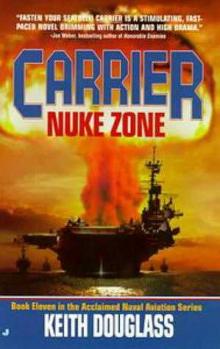 Nuke Zone c-11
Nuke Zone c-11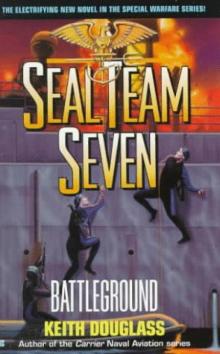 Seal Team Seven 6 - Battleground
Seal Team Seven 6 - Battleground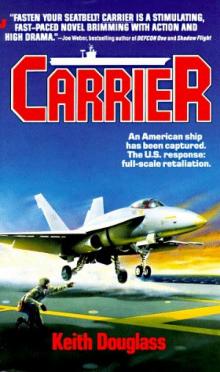 Carrier c-1
Carrier c-1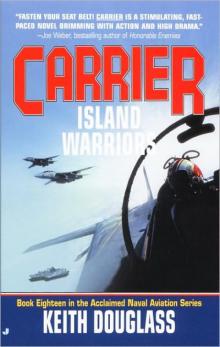 Island Warriors c-18
Island Warriors c-18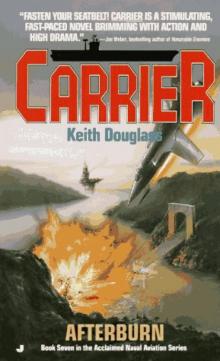 Afterburn c-7
Afterburn c-7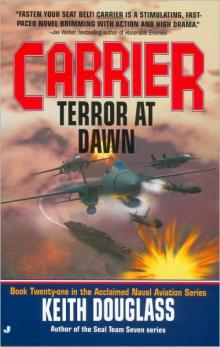 Terror At Dawn c-21
Terror At Dawn c-21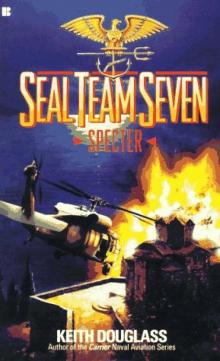 Specter sts-2
Specter sts-2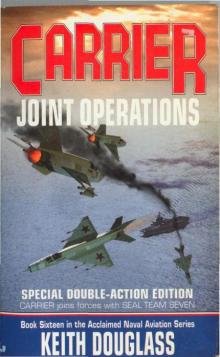 Joint Operations c-16
Joint Operations c-16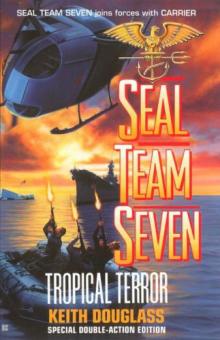 Tropical Terror sts-12
Tropical Terror sts-12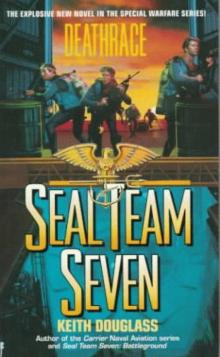 Seal Team Seven 7 - Deathrace
Seal Team Seven 7 - Deathrace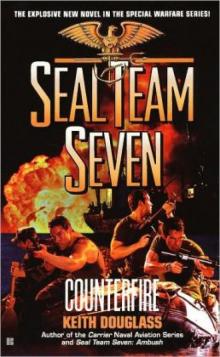 Counterfire sts-16
Counterfire sts-16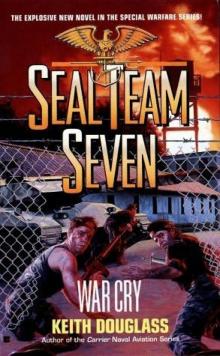 War Cry sts-9
War Cry sts-9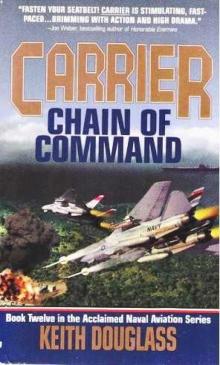 Chain of Command c-12
Chain of Command c-12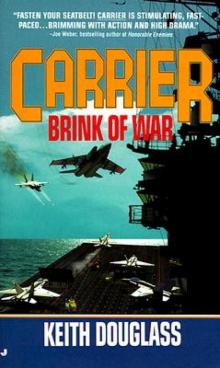 Brink of War c-13
Brink of War c-13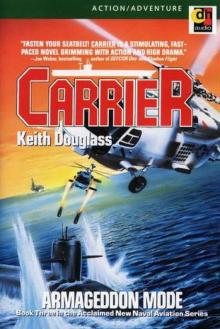 Armageddon Mode c-3
Armageddon Mode c-3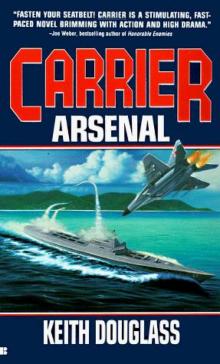 Arsenal c-10
Arsenal c-10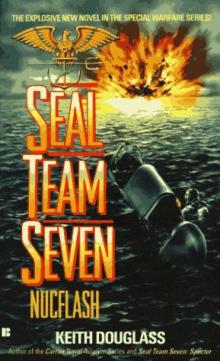 Nucflash sts-3
Nucflash sts-3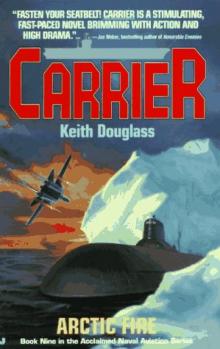 Arctic Fire c-9
Arctic Fire c-9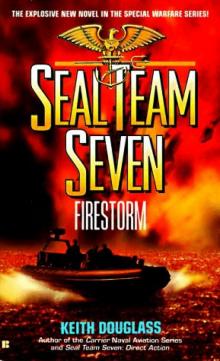 Firestorm sts-5
Firestorm sts-5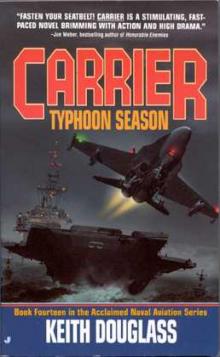 Typhoon Season c-14
Typhoon Season c-14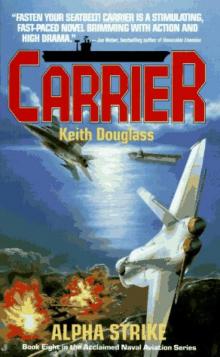 Alpha Strike c-8
Alpha Strike c-8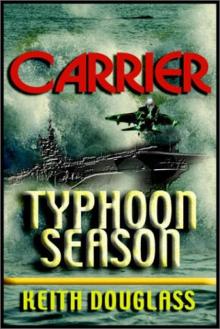 Carrier 14 - TYPHOON SEASON
Carrier 14 - TYPHOON SEASON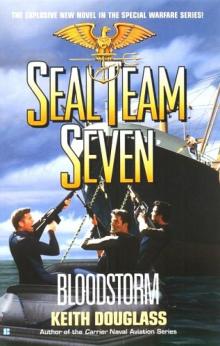 Bloodstorm sts-13
Bloodstorm sts-13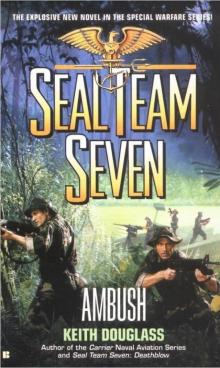 Ambush sts-15
Ambush sts-15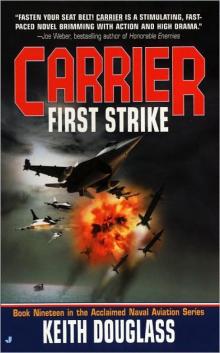 First Strike c-19
First Strike c-19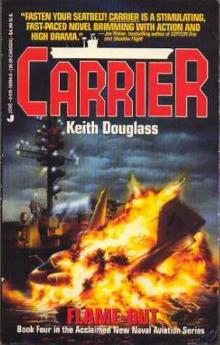 Flame Out c-4
Flame Out c-4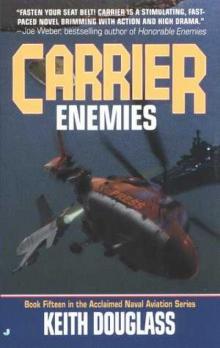 Enemies c-15
Enemies c-15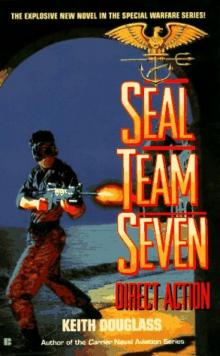 Seal Team Seven 04 - Direct Action
Seal Team Seven 04 - Direct Action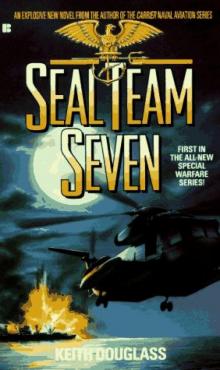 Seal Team Seven 01 - Seal Team Seven
Seal Team Seven 01 - Seal Team Seven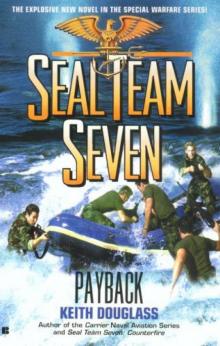 Payback sts-17
Payback sts-17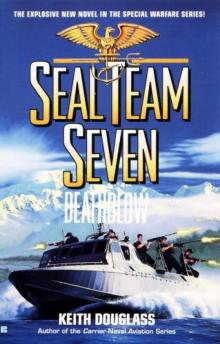 Death Blow sts-14
Death Blow sts-14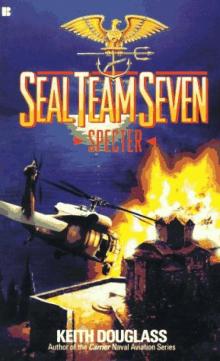 Seal Team Seven 02 - Spector
Seal Team Seven 02 - Spector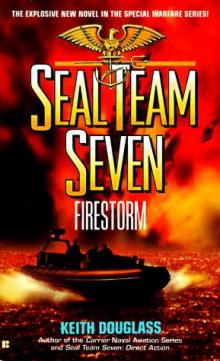 Seal Team Seven 5 - Firestorm
Seal Team Seven 5 - Firestorm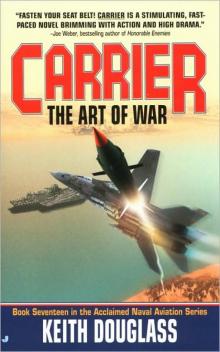 The Art of War c-17
The Art of War c-17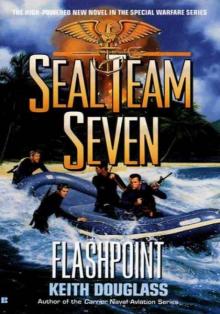 Flashpoint sts-11
Flashpoint sts-11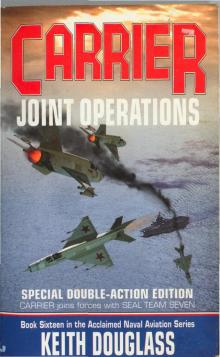 Carrier - Joint Operation Book 16
Carrier - Joint Operation Book 16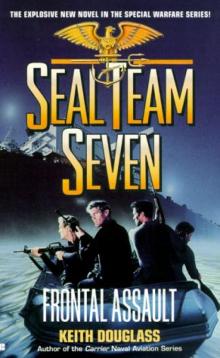 Frontal Assault sts-10
Frontal Assault sts-10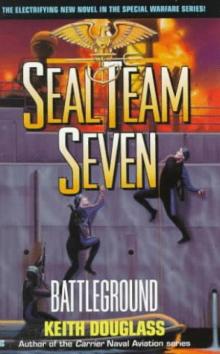 Battleground sts-6
Battleground sts-6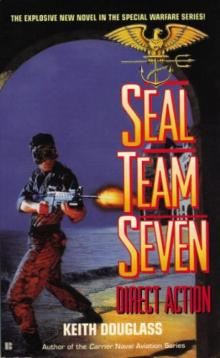 Direct Action sts-4
Direct Action sts-4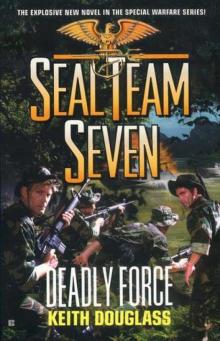 Deadly Force sts-18
Deadly Force sts-18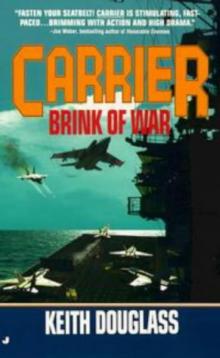 Carrier 13 - Brink of War
Carrier 13 - Brink of War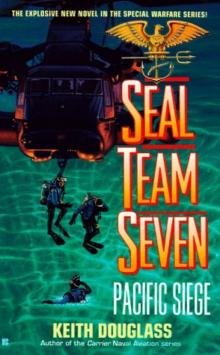 Pacific Siege sts-8
Pacific Siege sts-8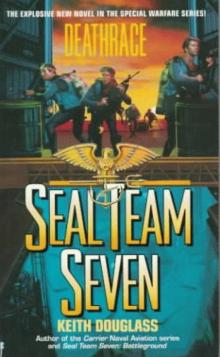 Deathrace sts-7
Deathrace sts-7